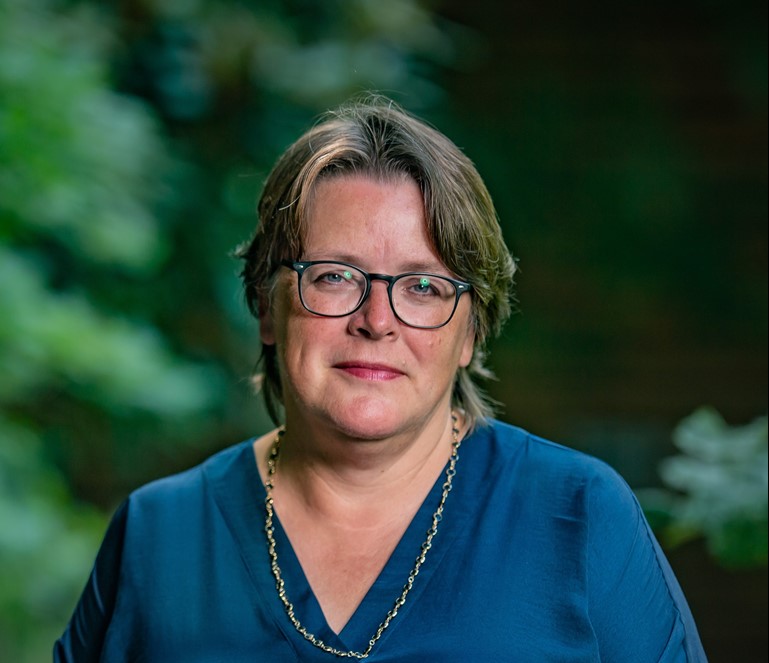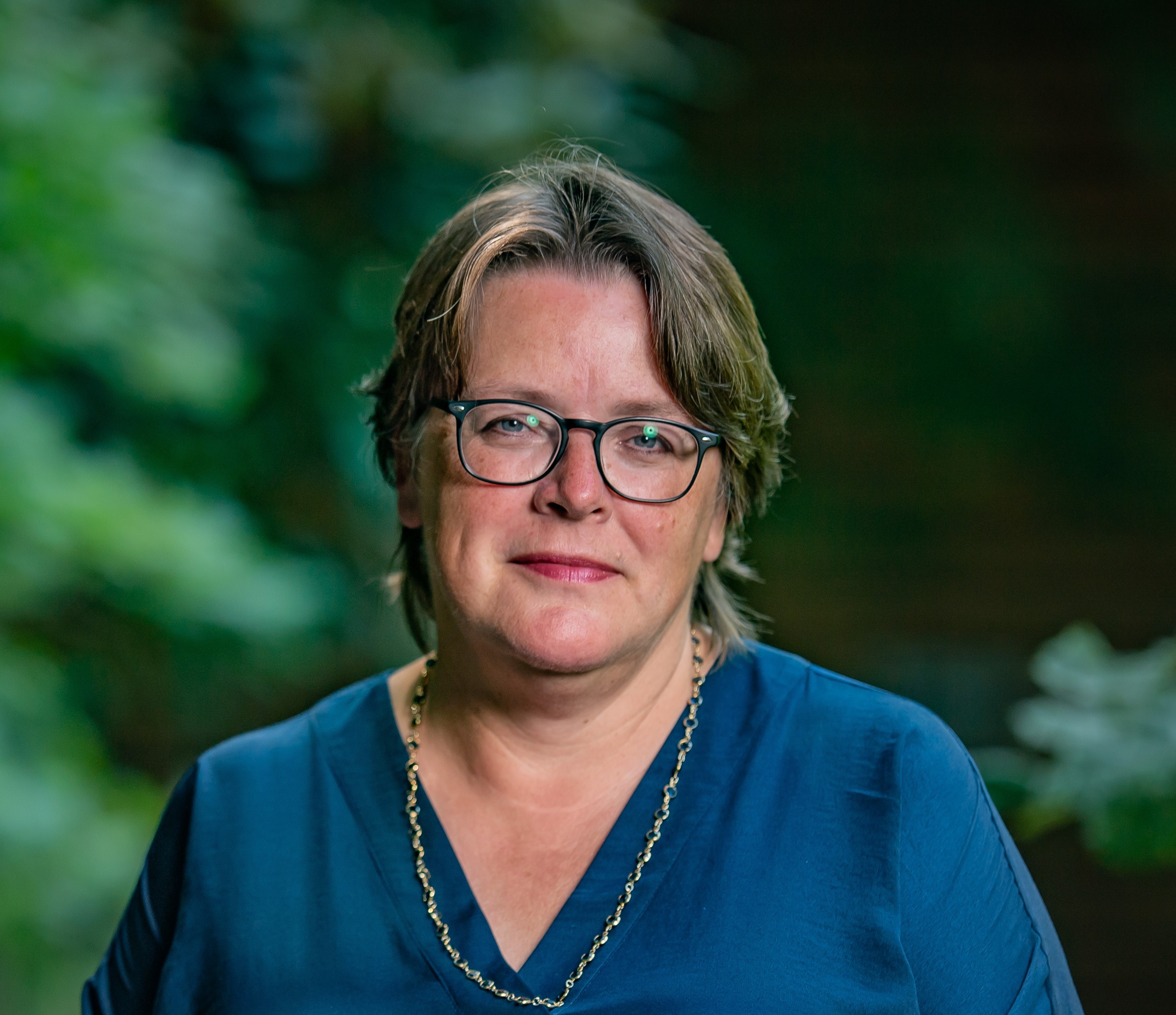Spotlight On...Caroline Sanger Davies: Celebrating The 90th Anniversary at Chester Zoo.
In line with the celebration of Chester Zoo's 90th anniversary, we decided to reach out and discover how their marketing efforts have changed over recent years as they celebrate such great heritage. Simon Poyser, from the CIM's North-West Board, catches up with Chester Zoo's Director of Marketing, Caroline Sanger Davies, and hear all about the Zoo's innovative journey into online marketing, finding and telling the amazing stories across the Zoo's departments, and the importance of engaging with fans as well as promoting all the good conservation efforts that the Zoo has been responsible for over it's history.
Simon: "Can we start by discussing how you got into marketing?"
Caroline: "I did my degree in English and Drama - my initial thoughts were that I wanted to be a drama teacher, but whilst at college I realised that teaching wasn't for me. I've always loved the theatre, but equally I was aware that I was not destined to be a performer and I thought another way into working in theatre would be to work in marketing. So that's how I started my first job, in the Peak District at Buxton Opera House where I joined as MarketingOfficer. It was a really good introduction into marketing creatively on a budget; as with all arts jobs then and now, and I learnt the basics very quickly.
I was there for three and a half years. One week you'd be working on a ballet and the next week, you'd be working on a touring Shakespeare production, or a comedy night and I loved the variety and immediacy of it all. You’ve got a certain amount of time to sell out a show, then it's on and then it's gone, but also the opportunity to meet your audience, your target market, because they were there every night. You’d see them as visitors coming in and you hear them going out and you could get instant feedback as to whether they enjoyed the show. It was really satisfying and so I just learnt my trade, I guess, to an extent by just doing that and enjoyed it immensely.
And then over the years I continued to work in the arts. Cheltenham Music Festival, Cheltenham Literature Festival for a couple of years, Hereford Theatre, the Eisteddfod in Llangollen and my last role in the arts was Director of Marketing and Communications, opening Wales Millennium Centre. Then I worked a little bit in in education marketing and was freelance before I joined the zoo in 2012."
Simon: "So you've been at the zoo for nearly 9 years?"
Caroline: "Yes it has been a while and quite a journey!"
Simon: "Can we talk about the zoo, its marketing and how it's changed over those 9 years and what the Chester Zoo brand stands for? It’s promoted as the UK’s most visited zoo but also a charity, preventing the extinction of animals."
Caroline: "Yes, the charity positioning has been a focus for me and my team, ever since I joined. I think what people saw at that point in time, was a good visitor attraction. They didn't understand or know that we were a charity as well, so their interest was driven by their motivation to visit and have a great day out. Hidden underneath the surface was the zoo’s mission – now clearly defined as “preventing extinction”. So, we spent a lot of time uncovering and making our mission much more visible to people, the behind the scenes work that we do in conservation, science, education and engagement. The zoo is home to a huge amount of incredibly intelligent and passionate people- the scientists, the keepers, the species specialists. There is a huge wealth of knowledge.
It was quite possible to come to the zoo and not see that at all, it just wasn't something that people were aware of. So our work has been to peel back the layers, so that people can see not just what a zoo is but why a zoo exists, and what our primary objective is: Our mission of preventing extinction and how that manifests itself not only in the workings of the zoo, but also in the work that we do beyond the zoo in the field, out in Kenya, or in South America, or in Southeast Asia. The brand focus really is on connecting people with wildlife, and using our communication skills to do that.
We’re after that moment, that small encounter that you can have, maybe seeing a rhino as a child for the first time; something like that may just spur you on to care a little bit more about rhinos and their existence, and doing small things that each of us can do to make that difference and prevent their extinction. So that's really what it's about, but I think we've become much more relevant because of the climate crisis, because we're losing biodiversity at a massive rate and species are becoming extinct, all the time, and we must stop that.
The zoo is one way that we can engage with people and we're seeing a broadening of people's reasons to go to the zoo now, be it Chester or other good conservation zoos.
They feel that they're doing something that supports the change, they feel that they're showing their children nature in an accessible way, and hopefully, taking home just one or two ideas of things that they have learned or things that they can do differently when they get home that will help. It’s all about that engagement when people visit now, so that’s what the brand is all about, it's bringing that that sense of understanding of the value of wildlife, whether it's a plant, hedgehog or tiger."
Simon: "So, do you think that perception of how people perceive Zoos and their purpose has changed significantly over the last 10 years?"
Caroline: "Yes but it’s not where we need it to be yet. There are zoos around the world which aren't great, but there are some amazing zoos (and I have to say Chester is one of them), which are doing fantastic conservation work.We are saving species, there are things happening that are so important.
They might not necessarily be the sexiest, most exciting things, but there are snails on this planet, for example, that wouldn't have been on this planet, had it not been for Chester Zoo’s intervention. So, there's been a slow recognition of that and the resulting impact on our reputation. We've done a lot of work to measure and manage our reputation and understand what it rests upon. We know that animal welfare is key, which we are absolutely focused on, with the best keepers giving the best care to the animals that we look after.
But also, people rate our impact on conservation as well, so they see that as an important pillar of our reputation."
Simon: "So, it is a case of articulating and getting those messages across to your different audiences."
Caroline:"Yes, whilst also bearing in mind that a zoo visit is just one of the many things that a family or an individual can choose to do."
Simon: "You are very much competing for the tourism aspect, it's not just people going to the zoo because they want to do a bit to prevent extinction. It’s a case of combining education in with the entertainment."
Caroline: "Yes, that’s right the education is in there and we certainly not ramming it down people's throats. We are inviting them in to have an amazing fun day, a really good day. Just seeing such a wide variety of species, but also, we've got lots of activities in the zoo which do make it fun. So this summer we have an exhibition called ‘Love it for Longer’, which is all about recycled materials and how you can use things again and again, and the importance of doing that. It’s great fun. There's a huge chameleon sculpture made from recycled plastic right at the entrance to the zoo, and many different things that people can see, and it just adds to the visit, but people will take something home from that and think about loving their possessions for longer."
Simon: "How innovative do you think you've had to be with your marketing?"
Caroline: "I think we're innovative and I think we've always got an eye on doing something different, and perhaps being the first zoo to do things in the UK. We brought in a massive dinosaur exhibition, some years ago, which then became quite a thing for zoos. We try to lead, and it's great to see other zoos then using concepts that we have tried and being able to engage more visitors as well.
My marketing team are creative and have some great campaigns up their sleeves. I think for me, everything rests on our knowledge of our audience and our visitors. So, the market research and visitor research that we do really informs all our marketing activity, and that works. That absolutely works."
Simon: "How has the pandemic impacted the Zoo and what have been the challenges for your marketing to counter that impact?"
Caroline: "It’s very scary when you shut the gates and the visitors that you love to engage with and depend on as a business can’t come and visit you. We've moved online, much more and swiftly. So within the first the first week of closing we'd announced our first virtual Zoo day, where we literally just picked up some iPhones and some mics and toured the zoo to create an online Zoo day.
We were lucky - we've worked with TV a lot. We've had Channel 4’s Secret Life of the Zoo, for many years. Our keepers are dab hands, talking about the animals that they care about.They are really good, and they know how to present and don't get jittery. So, having staff who can do that, and are keen to do that and a keen to share their work is brilliant.
We’re able to pull those things together relatively simply and quickly and my goodness it was clearly at a time that it was needed.
People were grappling with the concept of having to educate their children at home and occupy them. People were working from home and needing a break or furloughed and that was so tough, so I think we gave something to people that they really valued. Pushing our work online more has allowed us to engage with people beyond the realms of a zoo visit and reached those people that can't necessarily get to Chester and that's something that we really want to continue.
It’s important to us that we bring people into the zoo where we can have that face-to-face connection. But equally we know now that there are ways that we can really engage people with what we're doing it in a fun way that gives us a broader audience, so it's worth carrying on. And then, when we were struggling with the financial impact due to a lack of visitors, we went out with the “Save our Zoo’ campaign, people paid back and supported us tremendously, it was incredible."
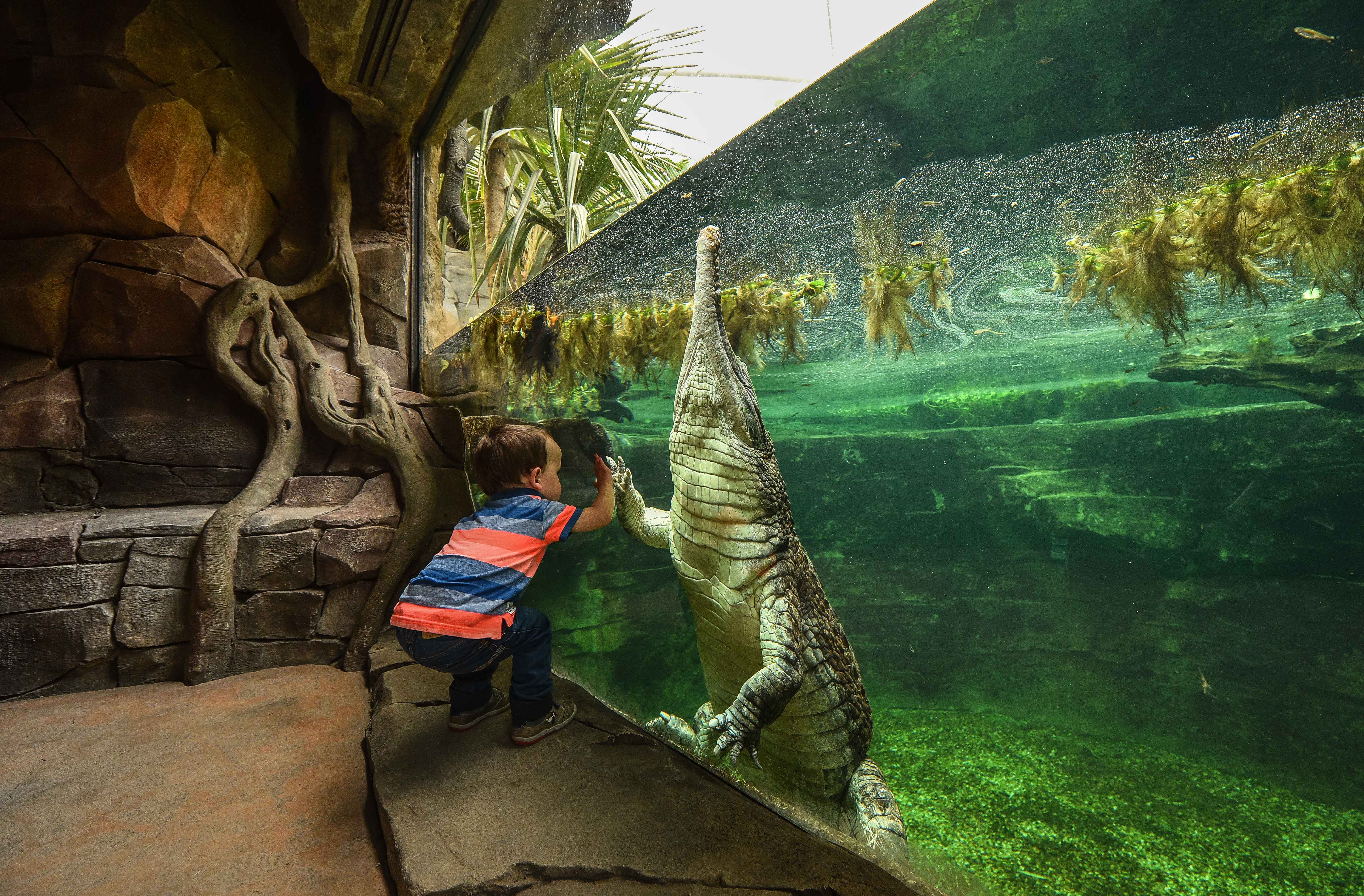
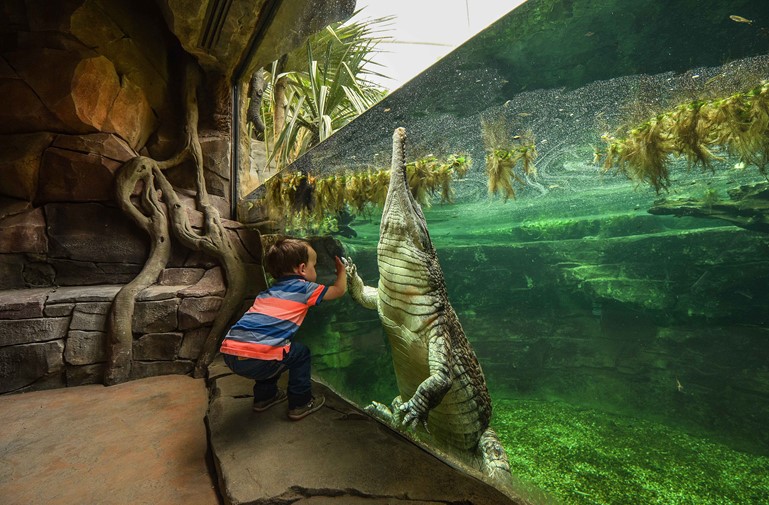
Simon: "What was the biggest challenge, do you think the zoo faced over the last 12 to 18 months?"
Caroline: "I think there were two. The first one was the day that the government said that they weren't going to give a date for zoos to reopen. That hit us like a shockwave really because 97% of our income is from the gates from visitors and them spending money when they're on site. Having no knowledge of a date when we could open again was terrifying really.
It just takes you into areas of thinking that you've not had to deal with before.So we quickly, over my team’s kitchen tables and Microsoft Teams pulled the “Save Our Zoo” campaign together. It was a fundraising campaign, but it was also a lobbying campaign. It was responding to people saying “how can I help?” We asked them to donate, but also to write to their MP to tweet them, you can get on to them on Facebook, you can do whatever you can but tell your MP, that this is not okay. This is not okay for Chester Zoo and it's not okay for any of the zoos.
So, very quickly we built up a real head of steam and the key people in Westminster were being asked by their constituents, what are you're doing about this? So it turned the situation around very quickly and within a week we had a statement saying zoos can reopen.
It was the power of the people who see Chester Zoo as theirs. One of the real strengths of our brand is that people take Chester Zoo into their hearts, they care about it passionately.
We're very transparent; we're very open. They got on board with the campaign and my goodness they stood up and they said: ‘This can't happen’.
That was the power of the brand, and the love people have for Chester Zoo. So that was difficult but amazing as well, because we turned it around, but when I say we, I don't just mean the zoo and my team, I mean, the zoo family. The other difficult thing I think was how to keep the glue together, of our teams.
Obviously keepers were still working at the zoo. But many of us were working from home. And of course there were a big chunk of staff that were furloughed, and our ‘zoo magic’ if you like, works on those relationships and the chemistry that you get between all these people to do wonderful things. It was really quite difficult to hang on to that during a period when everybody was so dissipated. Online is great but it's not the same."
Simon: "Yes, it’s a completely different dynamic."
Caroline: "It’s been difficult, and we're not fixed yet, but it will come back in time, it will come back. Once we get everybody back together.
We’ve still got people working at home obviously so, the more that we can get people even in just for a couple of days to connect with colleagues - that will be good. But certainly, from a point of view of my marketing and PR team, fundraising team and Public Affairs, we need them to connect, and spark off each other. They did amazing things over Microsoft Teams and online but it's even better when they're together."
Simon: "What do you think the zoo’s marketing opportunities should be going forward?"
"Pursuing that online engagement, beyond our zoo visitors. I think, a more in-depth relationship with our visitors through online pre visit and post visit. But then extending that relationship to those people that don't necessarily come to the zoo and making them aware that we have a role, a critical role to play in all the climate change and biodiversity conversations.
As we're a conservation education charity, it's vital that we get our message across about how to protect the species on this planet in the face of hugely increasing challenges. Yes, that's what we need to do. Doing it digitally is one of the ways forward.
I think the other thing that we've seen is our ability to adapt and change, and be resilient, and we mustn't forget that because as you know this just isn't about just Chester Zoo this applies to so many people and organisations. If you can get through this, then wow! Use those skills and use that resilience for other things - so I think that will stand us in good stead."
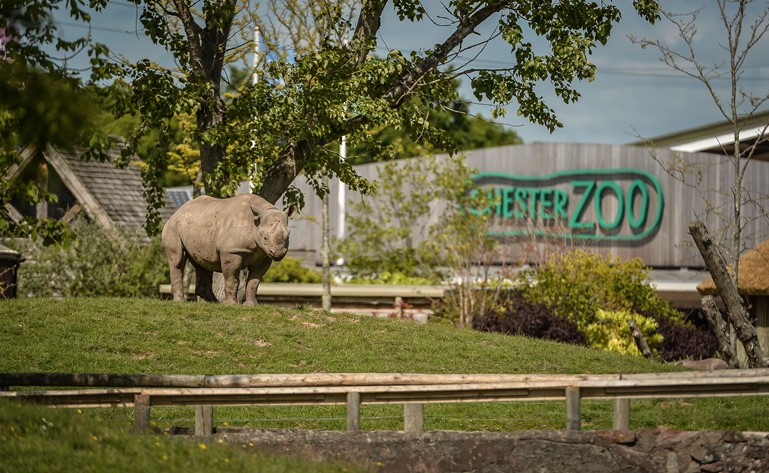
Simon: "What advice would you give graduates and early-stage professionals looking to get into marketing in your sector and the areas you’ve worked in?"
Caroline: "I think if you can do paid internships, or work experience, that’s fantastic but they are few and far between. My first foray into theatre marketing was work experience at the theatre in Chester, whilst still at school. I was hooked! CIM courses online and in person are one of the best things, I think. Just absorb anything that's available, but also going to CIM meetings, now we're back into a period where we can meet face to face in a big room. Going to those events CIM events, the CIPR events, based on whatever you want to do. Being there talking to people and making those connections, it's important. Even just starting to do the CIM courses I think gives you that good solid level of marketing knowledge.
My advice would be to connect and talk with people; there are so many good networking opportunities. You can obviously network for networking’s sake but done carefully and by choosing the right organisations and events to be part of you can carefully build a good community of marketing contacts. When I did my CIM diploma I met some fantastic marketers. I was working for an arts organisation, one fellow student worked for an industrial organisation, there was somebody working for a college, someone working in retail; so you meet that that wide variety of people who are talking about marketing in different circumstances and different sectors. It is helpful to understand that marketing theory can be applied in so many different ways.
I know from being freelance before I joined the zoo, and now about to go back to being freelance, that having that core marketing knowledge and the ability to apply that for different clients and different circumstances is key. That's your rock really; that's your trade."
Simon: "Yes, that’s your skill set as a marketer. Has the marketing team grown a lot over the last 10 years?"
Caroline: "We have grown based on success. We’ve grown our business numbers; we've grown our visitor and membership numbers and I've expanded the team on that basis. We’re always creating, one of the things we are never short of at Chester Zoo is content. We've got so many stories and so many amazing images and films. So carefully curating that content is something that we spend a lot of time doing for the right audiences at the right time. That’s very much a growth area for us now.
We have grown and created a brilliant team. I think it’s about getting the right people and they all work well together, then they can do amazing things. We retain and we find good people, and this is again due the power of the brand. Good, marketers and communicators, and good fundraisers want to work with good brands.
Simon: "I guess it’s a case of quality attracts quality. Do you encourage the team to pursue the CIM qualifications?"
Caroline: "Absolutely if I see they have CIM membership even if they just working towards their qualifications, I see that commitment to professionalism and personal development. Marketing has never stood still, so you need to be part of a professional organisation like the CIM, I believe, to keep pace with it and we encourage our team to do CIM courses.
Simon: "So, talking about what the next chapter holds and your plans after Chester Zoo would you like to talk about why you have decided to leave the zoo?"
Caroline: "The zoo is just incredible. I've been so fortunate and privileged to be a part of it. But I guess like for so many people, the pandemic makes you stop and think, oh, you know, life's short. And I think I could now either stay till I retire, you know it may be 10 or 12 years’ time or I can take the amazing knowledge that I've gained from working at the zoo and share it with other organizations, and have some adventures, so that's what I've opted to do. As I keep saying I've got a cracking team at the zoo, they will absolutely fly.
There will be a new director of marketing coming in soon. So, for me it's my time to have some adventures, and work with a variety of clients. We've done a lot of work around sustainability at the zoo. We've worked on a sustainable palm oil campaign, we're looking at deforestation, we're looking at sustainable tourism, there’s a lot of knowledge and experience that I can take and support other organizations with. Getting your messaging right around sustainability is key, being clear that you're doing it properly and that you're not just jumping on the bandwagon is important. We’ve been through that kind of learning curve, and we've taken our visitors and our supporters on that journey with us, so I've learned a lot about the sustainability comms side of work and I'm keen to take that further.
Simon: "It makes sense. I think a few people have taken stock over the last 12 months and are now looking for new challenges or a different way of doing things."
Caroline: "It won't stop me loving the zoo, I shall go back and see my favourites the elephants from time to time. I’ll become a member; it is part of my history, and it will be great to stay in touch. That’s brilliant and it’s provided an interesting and useful insight. I wish you good luck and every success with your new venture and the next chapter of your career."
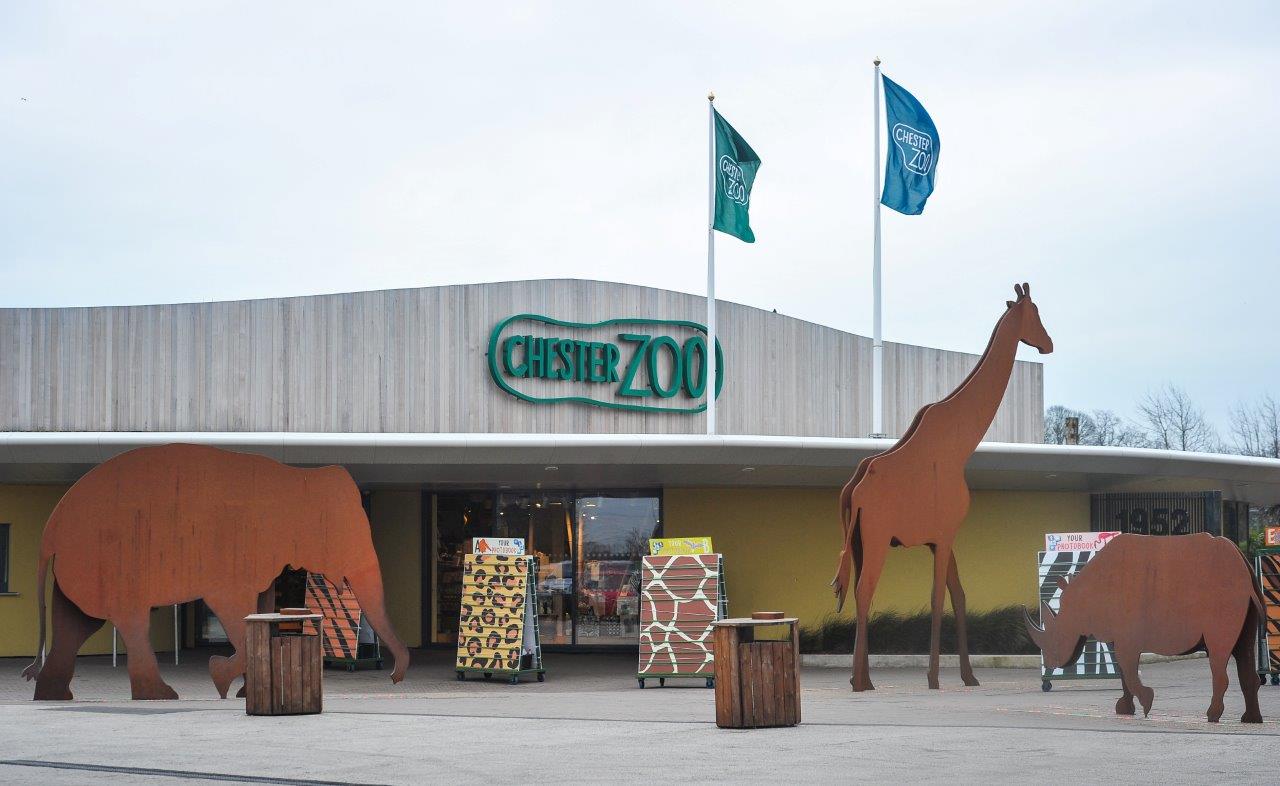
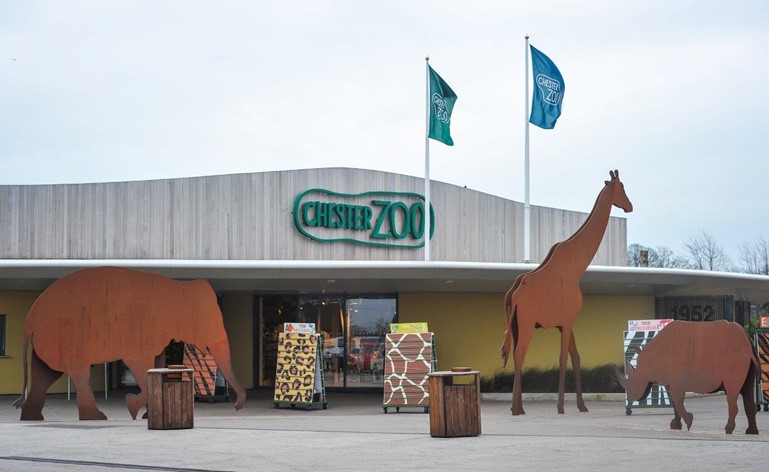
Simon: "One final point before we finish, please can you recommend any podcasts, books, share any final tips?"
Caroline: "I have very little time to do the additional reading but I read the Catalyst magazine, I really like that, and I watch the CIM webinars whenever I can. In terms of tips, look for variety, just delve into whatever you can really, but go beyond your sector as well would be my advice; just go and see what is happening in other sectors and see what's transferable. But I think my biggest tip is find a brand or an organisation that that you care about and that you're passionate about and your marketing will soar, because it matters to you personally."
This interview was conducted by Simon Poyser, Managing Director at iQ Media and Vice Chair of Events for the CIM's North-West Board.


